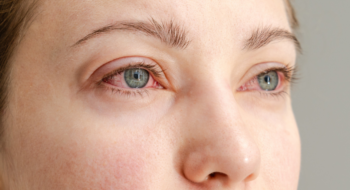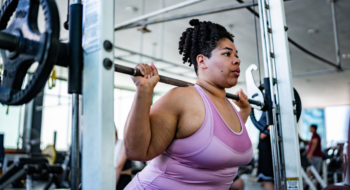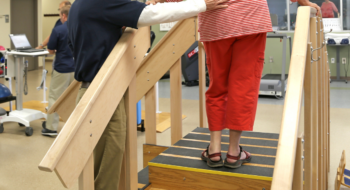Every year, about 1 million older adults are hospitalized after falling, according to the Centers for Disease Control and Prevention. And there are about 3 million annual emergency department visits after falls.
That’s why as you age, you may hear your providers talking more about your “fall risk,” or the likelihood that you could fall.
Doctors evaluate your risk by assessing several factors. People over the age of 65, who have recently had an injury or are experiencing dizziness, are at risk, says Michele Warehime, a physical therapist with Tidelands Health Neurological Rehabilitation Center.
In most cases, there are several ways people can lessen their risk. A series of sessions with a physical therapist can improve balance, strength and stability. The use of assistive devices such as canes or walkers can offer support while walking and increase safety. People can also learn how to make their homes safer by removing common obstacles, such as rugs that could cause falls.
If you experience trouble with balance or have already experienced a fall, you are likely at a higher risk and should talk to your doctor about your risk of falling.
Balance
Having trouble with balance is a leading indicator for increased risk of falls.
Balance is graded on a scale of independence. You’re independent if you can stand without swaying. Anything less than that increases your risk of falling. Physical therapists may conduct a series of tests to check your balance, including having you stand with feet together, on a soft surface, or with your eyes closed, stepping side-to-side, standing up from a chair and more.
The assessment is designed to give your provider a better picture of where you may be struggling, and how to help. Specific exercises can improve your balance and strength, while learning to use assistive devices properly can go a long way toward mitigating your risk.
Lifestyle
In addition to balance problems, having a history of previous falls can tell doctors a lot about your risk.
“We’re concerned about any falls,” Warehime says. “Sometimes falls are bad luck — it happens to all of us. But sometimes they’re consistent and they have patterns.”
Your doctor will likely ask questions about your lifestyle, including whether you use any assistive devices or whether there are obstacles that pose problems for you. Sometimes, in addition to physical therapy to improve your balance, the solution requires some changes at home, such as removing clutter or remembering to turn on lights if you get up in the dark.
Your doctor will also take into account whether you have any conditions that may contribute to balance problems, such as dizziness, vision issues, cognitive impairments or effects from medications.
“Once you know your fall risk, you can take steps to minimize it,” Warehime says. “Balancing safety and quality of life are the most important things.”




